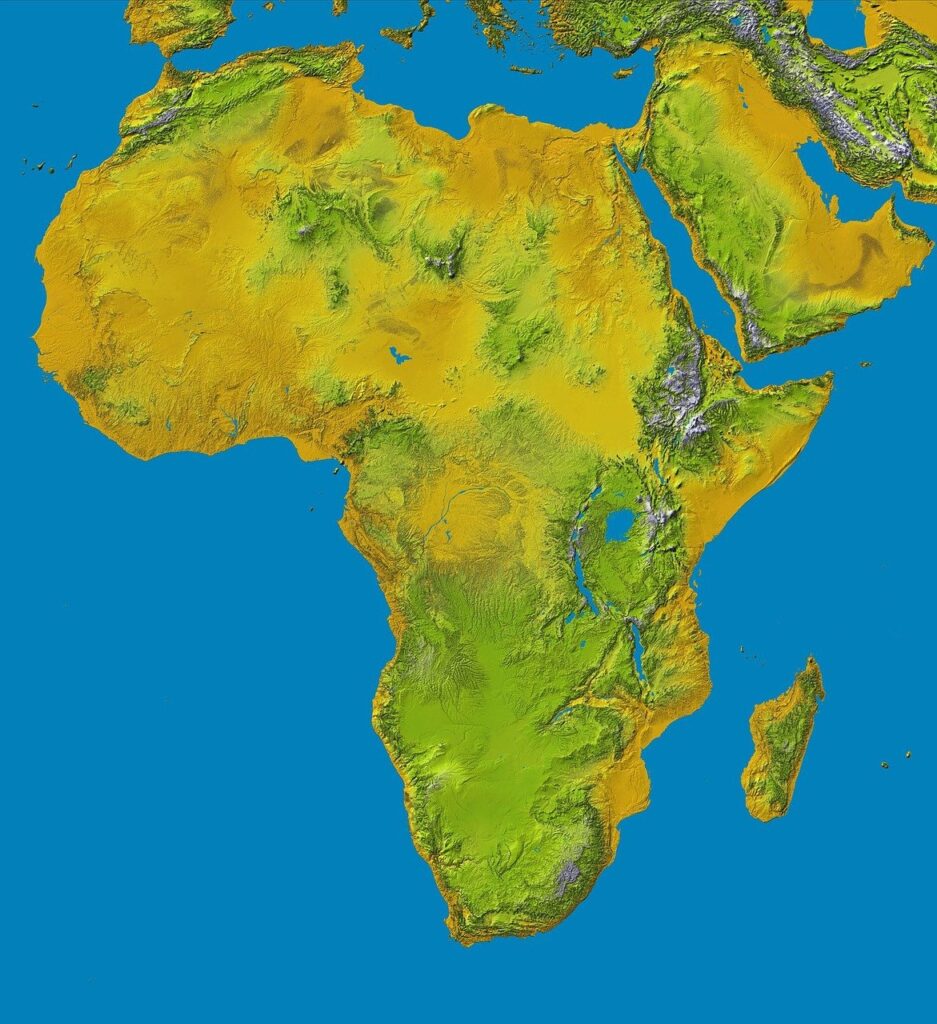The Future of Advertising in Africa
As the digital landscape continues to evolve, advertising in Africa, particularly in vibrant markets like Nigeria, is undergoing a transformative shift. The best advertising companies in Africa and best advertising agencies in Nigeria recognizes that the continent’s unique blend of cultural diversity, rapid technological adoption, and youthful population is reshaping how brands connect with consumers. From digital advertising to traditional media, the African advertising industry is poised for unprecedented growth, driven by innovation and strategic creativity. This article examines the key trends shaping the future of advertising in Nigeria and across the continent, providing insights into how businesses, including small enterprises, can capitalise on these developments to thrive in 2025 and beyond.
The Rise of Digital Advertising in Africa
Africa’s advertising industry is experiencing a digital revolution, with digital advertising becoming a cornerstone for brands seeking to engage a tech-savvy audience. The continent’s internet penetration is projected to reach over 50% by 2025, driven by affordable smartphones and widespread mobile network coverage. This growth has fueled the adoption of online advertising, making platforms like Facebook advertising and Instagram advertising indispensable tools for marketers.
Why Digital Advertising Matters
The shift to digital advertising is not just a trend but a necessity in Africa’s fast-evolving market. With over 600 million internet users expected by 2025, brands have an unprecedented opportunity to reach diverse audiences. Unlike traditional media, digital platforms offer precise targeting, real-time analytics, and cost-effective solutions, making them ideal for advertising for small businesses. Small enterprises in Nigeria, Kenya, and South Africa are increasingly turning to online advertising to compete with larger brands, leveraging tools like Google Ads and social media platforms to drive growth.
The Power of Social Media Platforms
Social media is at the heart of Africa’s digital advertising boom. Platforms like Facebook and Instagram dominate the continent’s online space, with Nigeria alone boasting over 33 million Facebook users and 20 million Instagram users as of 2023. Facebook advertising allows brands to target specific demographics, interests, and behaviors, ensuring ads reach the right audience. Similarly, Instagram advertising, with its visually appealing format, is perfect for lifestyle, fashion, and consumer goods brands aiming to capture the attention of Africa’s youth.
For example, a Nigerian fashion retailer can use Instagram advertising to showcase its latest collection through immersive Stories or Reels, while a small business in Lagos can run Facebook advertising campaigns to promote local services with hyper-local targeting. These platforms are not only affordable but also offer scalable solutions, enabling businesses to start small and grow their reach as budgets allow.
Mobile-First Advertising: The African Advantage
Africa is a mobile-first continent, with over 80% of internet access occurring via smartphones. This trend is reshaping advertising in Africa, as brands prioritise mobile-optimised campaigns to engage consumers on the go. By 2025, mobile advertising is expected to account for over 60% of digital ad spend in Africa, driven by the proliferation of affordable devices and improved 4G and 5G connectivity.
Optimizing for Mobile Audiences
To succeed in digital advertising, brands must create mobile-friendly content that resonates with African consumers. This includes short-form videos, interactive ads, and seamless user experiences. For instance, advertising for small businesses can leverage SMS marketing or WhatsApp Business campaigns to reach customers directly on their phones. In Nigeria, brands like Jumia and Konga have mastered mobile-first strategies, using push notifications and in-app ads to drive conversions.
The Role of 5G in Advertising
The rollout of 5G networks across Africa, particularly in Nigeria, South Africa, and Kenya, will further accelerate the growth of online advertising. Faster internet speeds enable richer media experiences, such as augmented reality (AR) ads and high-definition video campaigns. For example, a best advertising agency in Nigeria might develop an AR campaign on Instagram, allowing users to virtually try on products before purchasing. This level of interactivity enhances user engagement and boosts conversion rates, making 5G a game-changer for advertising in Africa.
Influencer Marketing: A Growing Force
Influencer marketing is rapidly gaining traction in Africa, driven by the continent’s youthful population and high social media engagement. By 2025, influencer marketing is expected to account for a significant portion of digital advertising budgets, as brands partner with local influencers to build trust and authenticity.
Why Influencers Matter in Africa
African consumers, particularly Gen Z and Millennials, value authenticity and relatability. Influencers, ranging from macro-celebrities to micro-influencers with niche followings, offer brands a direct line to these audiences. For instance, the best advertising company in Africa might collaborate with a popular Nigerian fashion blogger on Instagram to promote a new clothing line, leveraging the influencer’s credibility to drive sales.
Case Study: Influencer Campaigns in Nigeria
In Nigeria, influencers like Tunde Ednut and Linda Ikeji have become powerful voices in advertising in Nigeria. Brands across industries, from beauty to technology, partner with these influencers to create sponsored content that resonates with local audiences. Instagram advertising campaigns featuring influencers often outperform traditional ads, as they blend seamlessly into users’ feeds, fostering organic engagement.
For advertising for small businesses, micro-influencers with 10,000 to 50,000 followers offer a cost-effective alternative. These influencers often have highly engaged audiences in specific niches, such as food, fitness, or tech, making them ideal for targeted campaigns. By 2025, expect to see more brands, especially small businesses, investing in influencer partnerships to amplify their online advertising efforts.

Programmatic Advertising: Precision and Scale
Programmatic advertising, which uses AI and data to automate ad buying, is set to transform advertising in Africa. By 2025, programmatic ad spend in Africa is projected to grow significantly, driven by its ability to deliver personalized ads at scale.
How Programmatic Advertising Works
Programmatic advertising leverages data to target specific audiences based on their online behavior, location, and preferences. For example, a best advertising agency in Nigeria can use programmatic platforms to serve ads to Lagos-based consumers searching for “affordable smartphones” on Google. This precision ensures that ad budgets are spent efficiently, maximising return on investment (ROI).
Benefits for Small Businesses
For advertising for small businesses, programmatic advertising levels the playing field. Small enterprises can access the same sophisticated tools as larger brands, allowing them to compete in crowded markets. Platforms like Google Display Network and The Trade Desk offer programmatic solutions tailored to African markets, enabling businesses to reach audiences across websites, apps, and social media.
The Role of Video Content in Advertising
Video content is king in digital advertising, and Africa is no exception. By 2025, video ads are expected to dominate online ad spend, driven by the popularity of platforms like YouTube, TikTok, and Instagram Reels. African consumers, particularly in Nigeria, are avid consumers of video content, making it a powerful tool for brands.
Creating Engaging Video Ads
To succeed in online advertising, brands must create compelling, culturally relevant video content. For example, a Nigerian beverage brand might produce a 15-second TikTok video featuring local slang and music to promote a new product. Similarly, Facebook advertising campaigns can include video ads that highlight customer testimonials or behind-the-scenes footage, fostering a sense of connection with the brand.
The Rise of Short-Form Video
Short-form videos, typically under 60 seconds, are particularly effective in advertising in Africa. Platforms like TikTok and Instagram Reels have exploded in popularity, with Nigerian users spending hours daily on these apps. Brands that master short-form video content can capture attention quickly and drive engagement. For advertising for small businesses, short-form videos are a low-cost, high-impact way to reach audiences without requiring large production budgets.
Localized Content: Speaking to African Audiences
One of the most critical trends in advertising in Africa is the emphasis on localised content. African consumers value brands that understand their culture, language, and values. By 2025, brands that fail to localise their campaigns risk losing relevance in this diverse market.
The Importance of Cultural Relevance
In Nigeria, for example, campaigns that incorporate local languages like Yoruba, Igbo, or Hausa resonate deeply with audiences. And the best advertising companies in Africa will create ads that reflect local traditions, humour, and aspirations. For instance, a Facebook advertising campaign targeting Nigerian mothers might use Pidgin English and feature family-oriented themes to build trust.
Hyper-Local Targeting
Advancements in digital advertising technology enable brands to target specific regions or communities within Africa. For example, a small business in Accra can use Instagram advertising to target consumers within a 10-kilometer radius, ensuring ads are relevant to local needs. This hyper-local approach is particularly effective for advertising for small businesses, as it maximizes impact while minimizing waste.
The Emergence of AI and Data-Driven Advertising
Artificial intelligence (AI) is revolutionizing advertising in Africa, enabling brands to create personalized, data-driven campaigns. By 2025, AI-powered tools will play a central role in online advertising, from content creation to audience segmentation.
AI in Ad Creation
AI tools can generate ad copy, visuals, and even video content tailored to African audiences. For example, a best advertising agency in Nigeria might use AI to analyze consumer data and create personalized Facebook advertising campaigns that resonate with specific demographics. AI also enables dynamic ad optimization, ensuring ads evolve based on real-time performance metrics.
Data Privacy and Ethical Advertising
As AI and data-driven advertising grow, so does the need for ethical practices. African consumers are becoming more aware of data privacy, and brands must prioritize transparency to build trust. By 2025, expect stricter regulations around data usage in advertising in Africa, particularly in markets like Nigeria and South Africa. The best advertising companies in Africa will adopt ethical practices, ensuring compliance while delivering impactful campaigns.
Sustainability and Purpose-Driven Advertising
African consumers, particularly younger audiences, are increasingly drawn to brands that align with their values. By 2025, sustainability and purpose-driven advertising will become key differentiators in advertising in Africa.
Why Purpose Matters
Brands that champion social causes, such as environmental sustainability or community development, resonate with African consumers. For example, a Nigerian skincare brand might launch a digital advertising campaign highlighting its use of eco-friendly packaging, appealing to environmentally conscious consumers. Similarly, advertising for small businesses can focus on community impact, such as supporting local artisans or charities.
Examples of Purpose-Driven Campaigns
In 2023, brands like MTN and Airtel in Nigeria ran campaigns promoting digital literacy and education, earning goodwill among consumers. By 2025, expect more brands to integrate purpose into their online advertising strategies, using platforms like Facebook advertising and Instagram advertising to share stories of impact.

The Role of E-Commerce in Advertising
Africa’s e-commerce sector is booming, with platforms like Jumia, Takealot, and Konga driving growth. By 2025, e-commerce advertising will be a major component of digital advertising, as brands leverage online marketplaces to reach consumers.
In-App Advertising
E-commerce platforms offer unique opportunities for advertising in Africa. For example, a small business selling handmade jewelry can run in-app ads on Jumia, targeting users browsing similar products. These ads are highly effective, as they reach consumers at the point of purchase, increasing conversion rates.
Social Commerce
Social media platforms are also becoming e-commerce hubs, with Facebook advertising and Instagram advertising enabling direct sales through shoppable posts. By 2025, social commerce will account for a significant portion of online advertising spend, as brands integrate shopping features into their campaigns.
Challenges and Opportunities in African Advertising
While the future of advertising in Africa is bright, challenges remain. Limited internet access in rural areas, high data costs, and fragmented markets pose hurdles for brands. However, these challenges also present opportunities for innovation.
Overcoming Connectivity Barriers
Brands can leverage offline channels, such as radio and billboards, to complement digital advertising efforts in underserved areas. For example, Gwrite advertising agency in Nigeria might combine Facebook advertising with local radio campaigns to reach both urban and rural audiences.
Tapping into Emerging Markets
Africa’s smaller markets, such as Rwanda and Ghana, offer untapped potential for advertising for small businesses. By 2025, expect more brands to invest in these markets, using localised online advertising strategies to capture growing consumer bases.

The Future Outlook: What to Expect by 2030
Looking beyond 2025, the future of advertising in Africa is poised for even greater transformation. Emerging technologies like virtual reality (VR), blockchain, and the metaverse will redefine how brands engage with consumers. For example, Gwrite advertising company in Africa might create immersive VR campaigns that allow consumers to experience products in a virtual store.
Additionally, the rise of pan-African media platforms will enable brands to reach audiences across borders, fostering a sense of unity through shared cultural narratives. Advertising in Nigeria, as a leading market, will set the tone for these innovations, with agencies pioneering new formats and strategies.
Conclusion
The future of advertising in Africa is dynamic and full of possibilities. From digital advertising and online advertising to Facebook advertising and Instagram advertising, brands have an array of tools to connect with Africa’s diverse audiences. For advertising for small businesses, the rise of mobile-first strategies, influencer marketing, and programmatic advertising offers affordable, scalable solutions to compete in a crowded market. As the best advertising company in Africa or the best advertising agency in Nigeria embraces these trends, the continent’s advertising landscape will continue to evolve, driven by innovation, cultural relevance, and consumer-centric approaches. By 2025 and beyond, brands that adapt to these trends will not only thrive but also shape the future of advertising in Africa.

